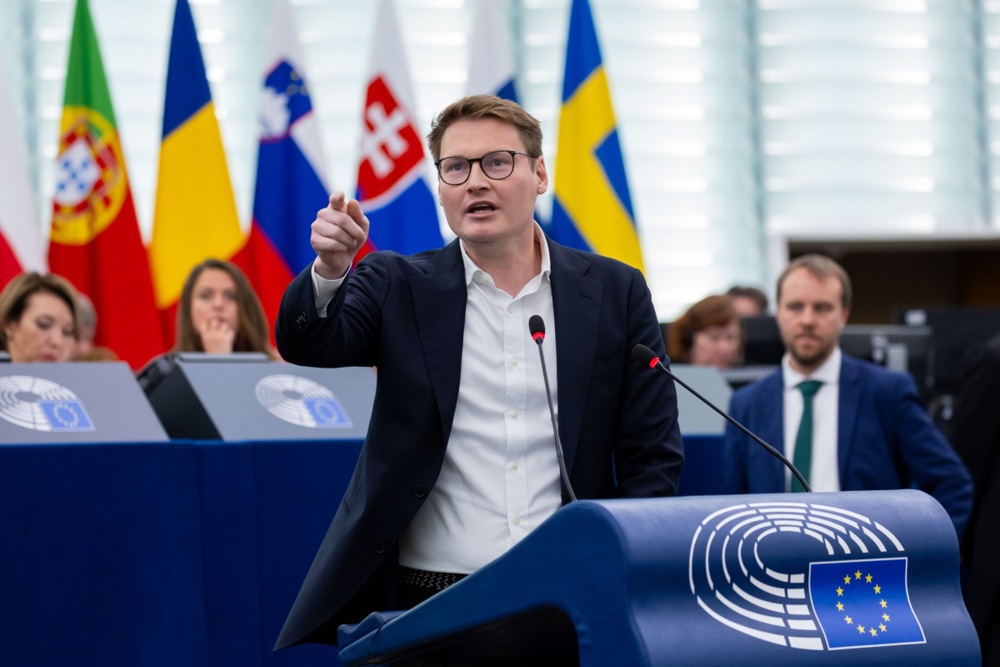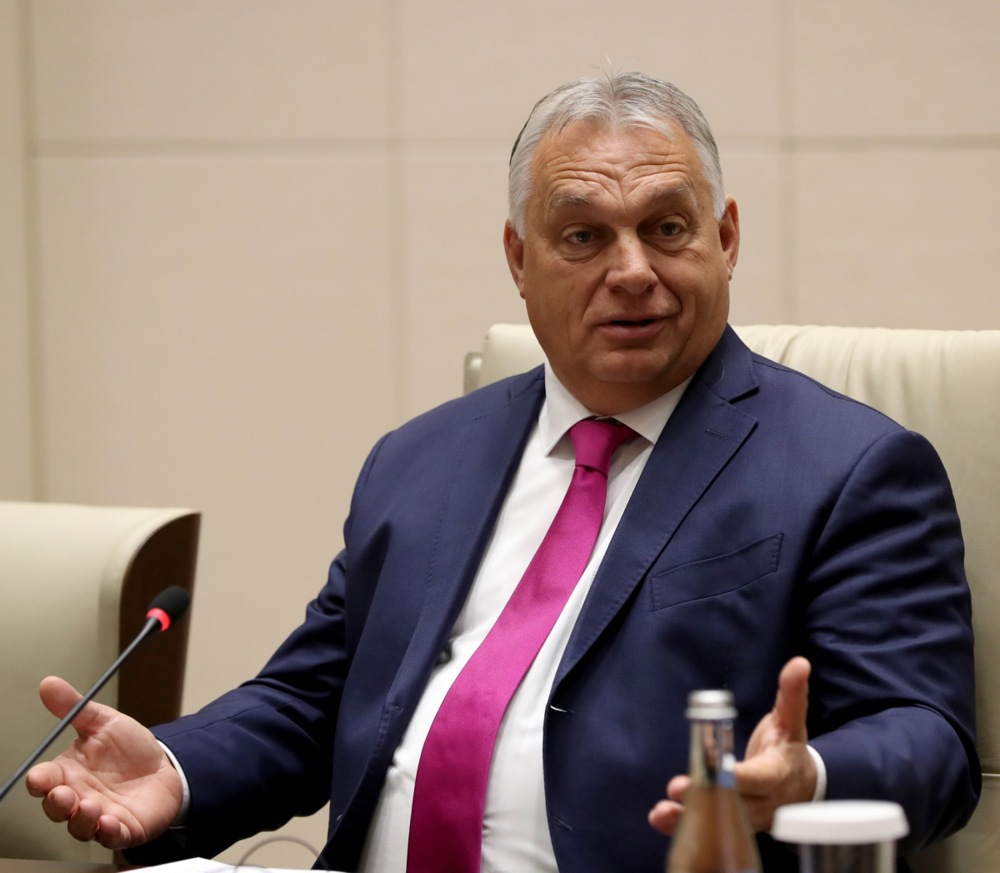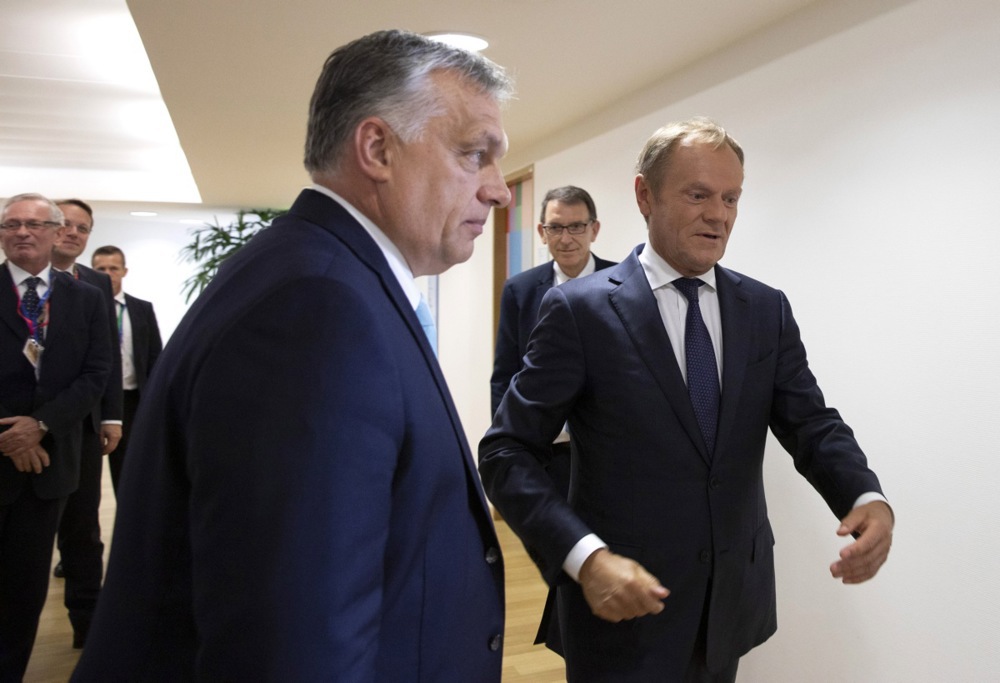The Polish foreign ministry has permanently withdrawn representation at ambassadorial level to Hungary.
Its announcement on July 17 was in retaliation for the “hostile act” of that country granting asylum to Marcin Romanowski MP, a former Polish deputy justice minister from the previous Conservative (PiS) government.
“On July 15, Sebastian Kęciek has ended his mission as Polish ambassador to Hungary,” announced the Polish foreign ministry’s spokesman Paweł Wroński. He added that Poland was currently represented in Budapest by the charge d’affaires of the embassy.
Wroński refused to be drawn on whether the situation was temporary or how long it might last. He pointed out, though, that the ambassador had already been called back home for consultations earlier in the year after Hungary had granted asylum to Romanowski.
“Hungary has acted in a hostile manner towards Poland and has breached the principle of loyalty within the European Union by granting asylum against a man accused of criminal and financial offences,” declared Wroński.
Hungarian deputy foreign minister Levente Magyar called the move an “unfortunate step”.
“Poland has permanently recalled its ambassador from Hungary, officially downgrading the level of bilateral diplomatic relations,” Magyar said in a Facebook post.
“This unfortunate step is the result of a gradual deterioration in our political ties, an unprecedented move in the history of our relations with any Central European partner,” he added.
“Nevertheless, we consider this a temporary situation … Despite the current political disagreements, we remain open to dialogue and are hopeful that better times will come again for the alliance between our two countries.”
Marcin Romanowski, who served in the last PiS government, has been charged with allegedly funneling €40 million from government funds to Conservative NGOs and of allegedly participating in an “organised criminal group”.
He left Poland in December last year once he had his Parliamentary Assembly of the Council of Europe (PACE) immunity lifted and the Polish Government moved to arrest him.
Hungary granted him asylum, saying his legal case was “not guaranteed to be dealt with impartially and free from political influence in his home country.” That was, it said, because the centre-left government led by Prime Minister Donald Tusk had launched a series of criminal investigations against former PiS government officials.
Romanowski has said that he was treating his “mission on the Danube” as a struggle against the “illegal actions of the Tusk government aimed at helping to ensure that a harmful regime is removed as possible from Poland”.
Relations between the two European Union and NATO members have deteriorated since Tusk’s coalition came to power in 2023, replacing PiS that had allied with Hungarian Prime Minister Viktor Orbán, despite differences over views on the war in Ukraine.
Tusk and Orbán had actually been allies for a long time when they were both a part of the European People’s Party and Orbán voted for Tusk to assume the role of President of the European Council (2014-2019).
But as Orbán’s and the EPP’s ways parted, his government became allied with the PiS government that ruled Poland between 2015 and 2023. That was mainly because both wanted to see less European integration, were opposed to the relocation of illegal migrants and asylum seekers and were both socially Conservative.
The current Tusk government is a supporter of deeper and faster EU integration and, like its predecessor, a supporter of Ukraine against Russia.
Orbán’s stance of opposing both the arming of Ukraine and tightening the sanctions regime against Russia has deepened the divide between the countries.
However, the Hungarian PM will have a potential ally within Poland in the shape of the PiS aligned president-elect Karol Nawrocki.
He is to take the oath of office on August 6 as the new Polish head of state and is more sceptical about the backing of Ukraine than his predecessor Andrzej Duda, but just as Conservative on social issues and EU integration.
Nawrocki, like Duda, was also unlikely to make it easy for the Tusk government to nominate whom it wanted to ambassadorial posts.
Duda has blocked a whole swathe of diplomatic appointments Poland’s foreign minister Radosław Sikorski proposed and there was no sign that Nawrocki would be more flexible.





